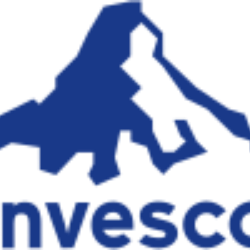
FMP

Invesco Dynamic Credit Opportunities Fund
VTA
NYSE
Inactive Equity
Invesco Dynamic Credit Opportunities Fund is a diversified closed-end management investment company. The Fund's investment objective is to seek a high level of current income, with a secondary objective of capital appreciation. The Fund invests primarily in a portfolio of interests in floating or variable senior loans to corporations, partnerships and other entities, which operate in a range of industries and geographic regions. The Fund invests in various sectors, which include business equipment and services; electronics and electrical; retailers (except food and drug); telecommunications; utilities; food products; healthcare; leisure goods, activities and movies; lodging and casinos; oil and gas; containers and glass products; structured products; cable and satellite television, and financial intermediaries. It may invest in senior loans to borrowers that are organized or located in countries other than the United States. The Fund's investment advisor is Invesco Advisers, Inc.
11.45 USD
-0.0100002 (-0.08734%)
DuPont Analysis
The DuPont analysis, pioneered by the DuPont Corporation, offers a structured approach to assessing fundamental performance. It involves breaking down the return on equity (ROE) into various components, aiding investors in comprehending the factors influencing a company's returns.
ROE = Net Income / Average Total Equity
ROE = (Net Income / Sales) * (Revenue / Average Total Assets) * (Average Total Assets / Average Total Equity)
The company's tax burden is (Net income ÷ Pretax profit). This is the proportion of the company's profits retained after paying income taxes. [NI/EBT] The company's interest burden is (Pretax income ÷ EBIT). This will be 1.00 for a firm with no debt or financial leverage. [EBT/EBIT] The company's operating income margin or return on sales (ROS) is (EBIT ÷ Revenue). This is the operating income per dollar of sales. [EBIT/Revenue] The company's asset turnover (ATO) is (Revenue ÷ Average Total Assets). The company's equity multiplier is (Average Total Assets ÷ Average Total Equity). This is a measure of financial leverage. Profitability (measured by profit margin) Asset efficiency (measured by asset turnover) Financial leverage (measured by equity multiplier)